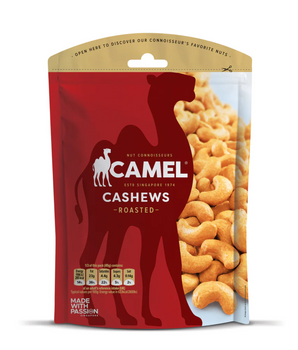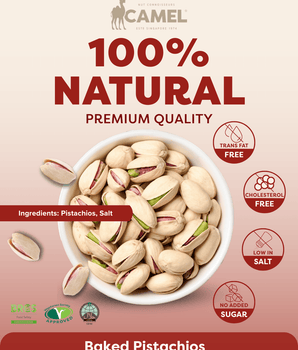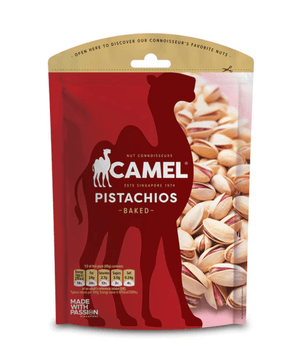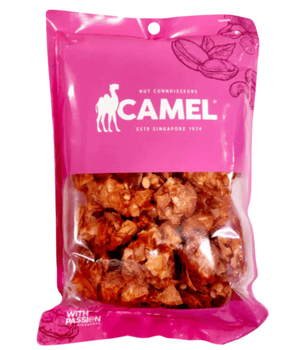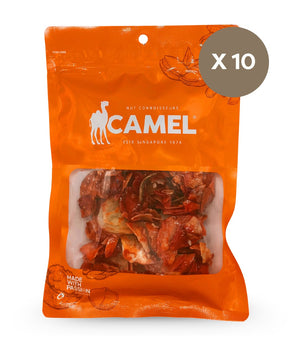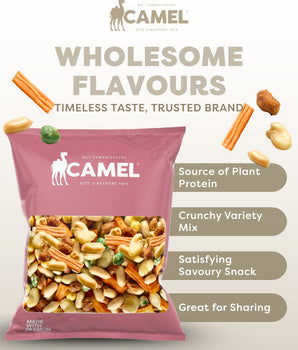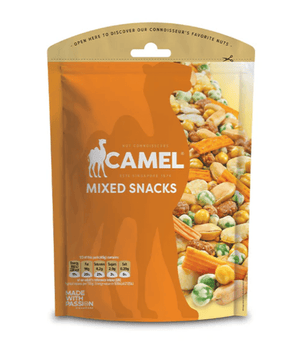Snacking often carries a negative reputation. Many associate it with impulsive eating or empty calories, but in reality, snacking can be a powerful tool when approached mindfully. For individuals managing diabetes, recovering from illness or injury, or those focusing on healthier aging, snacks are not indulgences—they are opportunities to nourish the body.
The right snacks can stabilize blood sugar, support muscle recovery, aid healthy aging, and keep energy levels consistent throughout the day. In this blog, we’ll explore who benefits most from smart snacking, why it matters, what to eat, and how to practice portion control. You’ll also find practical snack ideas, expert‑backed guidelines, and answers to common questions. Finally, we’ll highlight products from our Mindful Diet guide and our wholesome nut and fruit selections that make snacking both simple and purposeful.
Why Healthy Snacks Matter
For Aging Adults
As we age, nutrient absorption becomes less efficient, muscle mass declines, and risks of cognitive decline, cardiovascular disease, and bone fragility increase. Nutrient‑dense snacks can play a big role here:
- Walnuts, chia seeds, and fatty fish: support brain and heart health.
- Berries and dried fruits: packed with antioxidants for cell protection.
- Beans and legumes: aid gut health and provide plant protein.
Snacking helps older adults meet their calorie and nutrient needs in smaller, more frequent portions that are easier to digest and sustain energy.
For People with Diabetes
Balanced snacks help prevent dangerous blood sugar spikes and dips. Research shows that pairing protein, fiber, and healthy fats can stabilize glucose more effectively than carbohydrate‑only snacks. Examples include:
- Greek yogurt with berries.
- Nuts with a piece of fruit.
- Vegetables with hummus.
These combinations slow down carbohydrate absorption, helping maintain steady blood glucose.
For Recovery
During recovery—whether from surgery, injury, or illness—the body needs extra protein and antioxidants to repair tissue, reduce inflammation, and restore strength. Smart snacks here can include:
- Hard‑boiled eggs.
- Roasted chickpeas.
- Chia pudding with fresh fruit.
These choices deliver building blocks for healing while being easy to digest and manage in small portions.
Who Benefits & Snack Goals
Who:
- Adults managing diabetes.
- Aging populations seeking to maintain vitality.
- People in recovery from illness, surgery, or workouts.
Goals:
- Diabetes: Support blood sugar balance and prevent hunger swings.
- Aging: Enhance cognition, protect the heart, strengthen bones, and maintain muscle.
- Recovery: Provide protein and micronutrients for healing and inflammation control.
Principles:
- Keep snacks balanced: protein + fiber + healthy fats.
- Aim for ~150–200 kcal per snack.
- Limit to ~15 g of carbohydrates for those with diabetes.
Smart Snack Ideas & Portion Control
Here are practical, portion‑controlled snack options that fit into everyday life.
Nuts & Seeds
- Walnuts (¼ cup / 1 handful): Brain‑boosting omega‑3s, perfect for aging adults.
- Almonds or mixed nuts (1 oz): Fiber and protein for steady energy. Try our Natural Baked Ruby Mix for a wholesome balance.
- Chia seeds (2 tbsp with milk or yogurt): Create a simple chia pudding for sustained energy.
Yogurt & Berries
- Greek Yogurt (½–1 cup) with berries (½ cup): A protein‑rich snack with probiotics and antioxidants. For extra crunch, top with our Natural Fruits & Nutty Mix.
Protein‑Rich Snacks
- Hard‑boiled egg (1): ~6 g protein, almost no carbs.
- Roasted chickpeas (½ cup): Crunchy, protein‑packed, and fiber‑rich.
- Tuna or sardines on whole‑grain crackers (1 can + 3 crackers): Protein and omega‑3 combo.
Whole Grains & Vegetables
- Vegetables with hummus (2–3 tbsp): Carrots, cucumbers, and peppers offer fiber and vitamins.
- Air‑popped popcorn (3 cups): A whole‑grain option low in calories, but filling.
- Whole‑grain crackers with cheese (2–3 crackers + 1 slice cheese): Balanced carbs and protein.
Beans & Trail Mix
- Trail Mix (2 tbsp raisins + 1 tbsp nuts): Provides natural sweetness plus healthy fats. Try our Power Bounce pack for convenience.
- Edamame (½ cup): A plant‑based protein powerhouse.
Avocado & Other Superfoods
- Avocado slices (¼–½ fruit): Rich in heart‑healthy monounsaturated fats.
- Chia pudding with fruit topping: A satisfying, nutrient‑dense option.
How to Snack Mindfully
- Measure your portions: Use spoons, cups, or small containers to avoid overeating.
- Pair carbs with protein/fat: e.g., apple slices with almond butter, or carrots with hummus.
- Stick to ~15 g carbs per snack if managing diabetes.
- Avoid distractions: Eating while watching TV or scrolling often leads to overconsumption.
- Pre‑portion snacks: Especially for busy days or when traveling.
Explore more mindful practices in our Mindful Diet guide.
Supporting FAQs
Q1. Can I snack if I have diabetes?
Yes, in fact, snacking can help stabilize blood sugar. Choose balanced snacks with protein, fiber, and healthy fats. Limit to ~15 g carbs per snack.
Q2. How often should I snack?
Most people benefit from eating every 3–4 hours. For diabetes or recovery, smaller, frequent snacks may help prevent energy dips.
Q3. What’s a safe portion size for nuts?
Stick to one handful (~¼ cup or 1 oz). Nuts are nutrient‑dense but calorie‑rich, so moderation is key.
Q4. Should I avoid packaged snacks?
Most packaged snacks are high in added sugar, refined carbs, and sodium. Instead, choose whole‑food snacks or carefully selected packaged options like our Power Revive 25g packs.
Conclusion
Healthy snacking isn’t about deprivation—it’s about making choices that support your body’s needs. Whether you’re navigating diabetes, focusing on healthier aging, or recovering from illness, balanced snacks can keep your blood sugar stable, strengthen your body, and fuel your day. Know your needs, choose nutrient‑dense options, measure portions, and enjoy food mindfully.
For convenience and portion-controlled choices, explore our full range of premium nuts, fruit mixes, and mindful snacks. Start small, snack smart, and make every bite purposeful.




